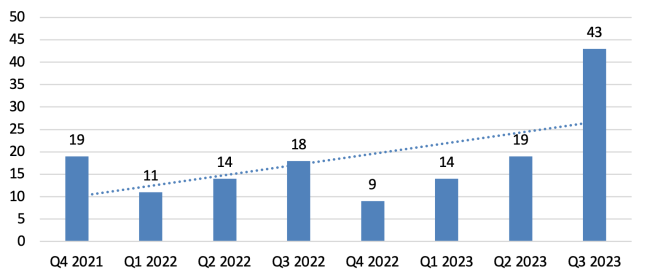2 minute read • published in partnership with Irwin Mitchell
Insight: Manufacturing in top four sectors dealing with the most equal pay disputes
The manufacturing sector ranks among the top four sectors in the UK facing equal pay disputes, according to analysis of employment tribunals over the past two years by Irwin Mitchell.
According to Irwin Mitchell’s findings, the number of equal pay cases across the UK has surged by 37% in the past year alone. The study uncovered 9 cases within the manufacturing industry where an employment tribunal decision has been made.
This recent spike is largely due to 22 equal pay cases related to one care provider servicing the private and public sector. When these cases are discounted, the sectors seeing the highest numbers of employment tribunal cases in the last two years are retail, logistics/transportation, and manufacturing.

The manufacturing sector ranks among the top four sectors in the UK facing equal pay disputes, according to analysis by law firm Irwin Mitchell / Picture: Getty/iStock
This significant increase highlights the urgent need for businesses to take proactive measures to address pay disparities and ensure fairness in the workplace.
Elaine Huttley, employment partner and member of Irwin Mitchell’s manufacturing sector group, emphasised the importance of tackling this issue head-on. She said: “The rise in equal pay disputes within the manufacturing sector is a concerning trend that cannot be ignored. Employers must recognise the value of fair compensation and take immediate action to address any discrepancies. By implementing transparent pay structures and conducting regular pay audits, businesses can foster a more inclusive and equitable work environment.
“The failure to recognise and proactively address disparities in pay can carry substantial financial consequences. As the number of these claims raises, it is important for businesses to undertake role evaluations within their workforces to identify where there may be risks of discrepancies in pay for equal work or equally valuable work. It’s also vital that the evaluations are conducted at various locations. The recent Asda ruling has, for example, established that comparators who work at a different site, with slightly different terms and conditions, can still be considered as valid comparators for equal pay purposes.”

Employment tribunal dispute cases (private sector) Source: HM Courts & Tribunal (Irwin Mitchell analysis)
